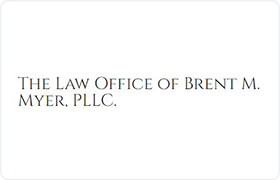New Port Richey Bankruptcy Lawyer, Florida
Sponsored Law Firm
-
 x
x

Click For More Info:
-
Law Office of Brent M. Myer, PLLC
27 SE Ocean Blvd Stuart, FL 34994» view mapBankruptcy & Debt Your Local Bankruptcy Attorney
Brent M. Myer has over 15 years of consumer bankruptcy experience and has represented both debtors and creditors in the past.
772-873-7794
Includes: Bankruptcy Litigation, Commercial Bankruptcy, Consumer Bankruptcy, Dissolution
Mark A Spence
Power of Attorney, Federal Trial Practice, Business, Bankruptcy
Status: In Good Standing Licensed: 43 Years
Ryan Hasanbasic
Consumer Rights, Consumer Bankruptcy, Personal Injury, Accident & Injury
Status: In Good Standing Licensed: 17 Years
 Brent Myer Stuart, FL
Brent Myer Stuart, FL Practice AreasExpertise
Practice AreasExpertise
